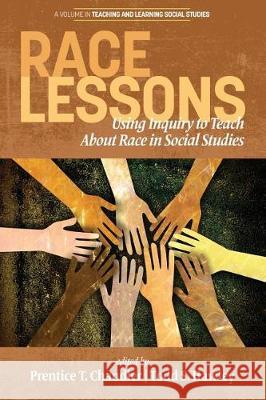Race Lessons: Using Inquiry to Teach About Race in Social Studies » książka
topmenu
Race Lessons: Using Inquiry to Teach About Race in Social Studies
ISBN-13: 9781681238906 / Angielski / Miękka / 2017 / 476 str.
Race Lessons: Using Inquiry to Teach About Race in Social Studies
ISBN-13: 9781681238906 / Angielski / Miękka / 2017 / 476 str.
cena 256,20
(netto: 244,00 VAT: 5%)
Najniższa cena z 30 dni: 254,63
(netto: 244,00 VAT: 5%)
Najniższa cena z 30 dni: 254,63
Termin realizacji zamówienia:
ok. 30 dni roboczych.
ok. 30 dni roboczych.
Darmowa dostawa!
Kategorie:
Kategorie BISAC:
Wydawca:
Eurospan (JL)
Język:
Angielski
ISBN-13:
9781681238906
Rok wydania:
2017
Ilość stron:
476
Waga:
0.66 kg
Wymiary:
23.39 x 15.6 x 2.44
Oprawa:
Miękka
Wolumenów:
01
Dodatkowe informacje:
Bibliografia











